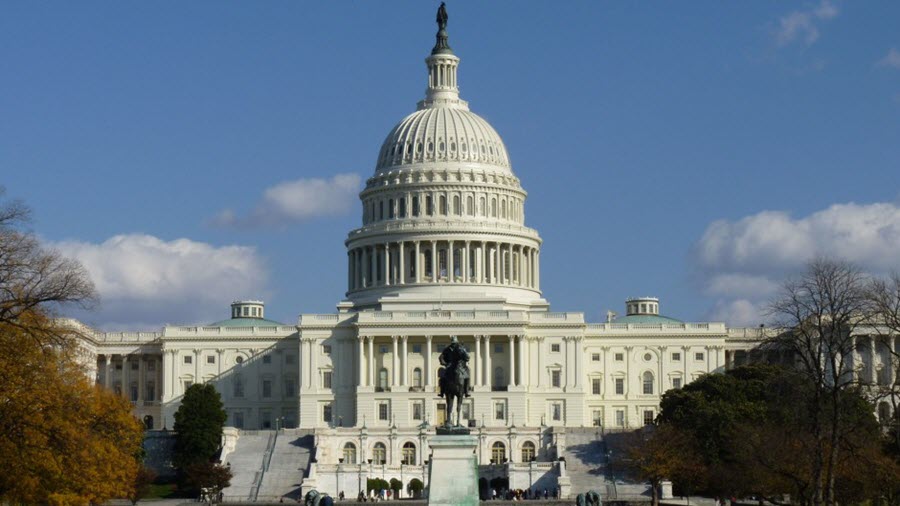Senators Challenge FCC Rural Broadband Map

The smarter way to stay on top of broadcasting and cable industry. Sign up below
You are now subscribed
Your newsletter sign-up was successful
Senators from both sides of the aisle are expressing concerns about the coverage map the FCC is planning to use to decide where to put more than $4.5 billion in rural broadband subsidies, and they want more time to challenge the agency's findings.
Update: FCC Chair Will Widen Mobility Map Challenge Window
The FCC put out a map of areas eligible for Mobility Fund Phase II money over the next decade as part of its move to redirect wireless carrier subsidies where private capital was already at work for, as FCC chair Ajit Pai put it, "something far more useful: bringing 4G LTE service to rural Americans who don’t have it today."
Targeting subsidies to unserved areas is an FCC priority under Pai, as well as for carriers who are not looking to be overbuilt by government funds.
Pai also said the redirect would include a "robust challenge process to identify the areas most in need of service."
Related: Wicker Backs Rural Broadband Proposal
But a group of senators led by Sens. Roger Wicker (R-Miss.) and Maggie Hassan (D-N.H.) said the map is significantly flawed; the group wants the FCC to extend the window for that robust challenge by another 90 days.
The smarter way to stay on top of broadcasting and cable industry. Sign up below
In a letter to Pai the senators said the FCC map shows areas in their home states that are purportedly served by 4G LTE, when experience on the ground suggests otherwise.
Related: Senate Bill Would Create National Broadband Access Standard
Also signing on to the letter (reprinted below) were Sens. Brian Schatz (D-Hawaii), Roy Blunt (R-Mo.), Angus King (I-Maine), Cory Gardner (R-Colo.), Sherrod Brown (D-Ohio), Pat Roberts (R-Kan.), Jeanne Shaheen (D-N.H.), James Lankford (-Okla.), Ron Wyden (D-Ore.), Richard Shelby (R-Ala.), Tammy Baldwin (D-Wisc.), Cindy Hyde-Smith (R-Miss.), Patrick Leahy (D-Vt.), Ron Johnson (R-Wisc.), Amy Klobuchar (D-Minn.), Todd Young (R-Ind.), Thom Tillis (R-N.C.), Christopher Coons (D-Del.), Claire McCaskill (D-Mo.), Kamala Harris (D-Calif.), Tina Smith (D-Minn.), Tom Udall (D-N.M.), Catherine Cortez-Masto (D-Nev.), Tammy Duckworth (D-Ill.), Doug Jones (D-Ala.), Edward Markey (D-Mass.), and Deborah Fischer (D-Neb.).
"Dear Chairman Pai:
"As you know, many of us have expressed concern about the accuracy of the Federal Communications Commission’s map of eligible areas for Mobility Fund Phase II Support (MFII). This map is intended to reflect areas that lack unsubsidized mobile 4G LTE service, but it unfortunately falls short of an accurate depiction of areas in need of universal service support. Therefore, the FCC’s challenge process will play an outsized role in determining appropriate eligible areas for MFII support. Communities in our states that are not initially eligible or successfully challenged will be ineligible for up to $4.53 billion in support over the next 10 years, exacerbating the digital divide and denying fundamental economic and safety opportunities to rural communities.
"While you have noted that state, local, and Tribal governments can participate in the challenge process, absent additional direction, they may remain unaware or unprepared to do so. We appreciate and encourage additional outreach to state, local, and Tribal governments on how they can participate in the challenge process. However, with less than 100 days remaining and additional state outreach presentations not yet completed, MFII challengers will struggle within the current timeframe to provide requisite information that will correct significant flaws in the current map. Additionally, the parameters for challenges have already changed once during the existing challenge timeframe through the Order on Reconsideration on April 30, 2018, altering existing measurements for challenges.
"In recent testimony before the Senate Appropriations Committee, you expressed that the FCC has “some flexibility [for] an extension of time” to ensure sufficient time for state and local governments, as well as carriers and other potential challengers, such as state farm bureaus, to fully participate in the process. To provide this additional time and encourage participation in the challenge process, we urge you to extend the current challenge process window by 90 days.
"The MFII process presents an opportunity to take significant steps to address the digital divide and preserve and expand mobile broadband in rural areas. We strongly urge you to ensure this opportunity is available to all communities deserving support through compiling accurate data that reflects our constituents’ experience, including providing additional time for challengers to submit data, conducting additional information sessions for state, local, and Tribal governments, and providing Congress with an update on final eligible areas before conducting an auction of support."
Contributing editor John Eggerton has been an editor and/or writer on media regulation, legislation and policy for over four decades, including covering the FCC, FTC, Congress, the major media trade associations, and the federal courts. In addition to Multichannel News and Broadcasting + Cable, his work has appeared in Radio World, TV Technology, TV Fax, This Week in Consumer Electronics, Variety and the Encyclopedia Britannica.

